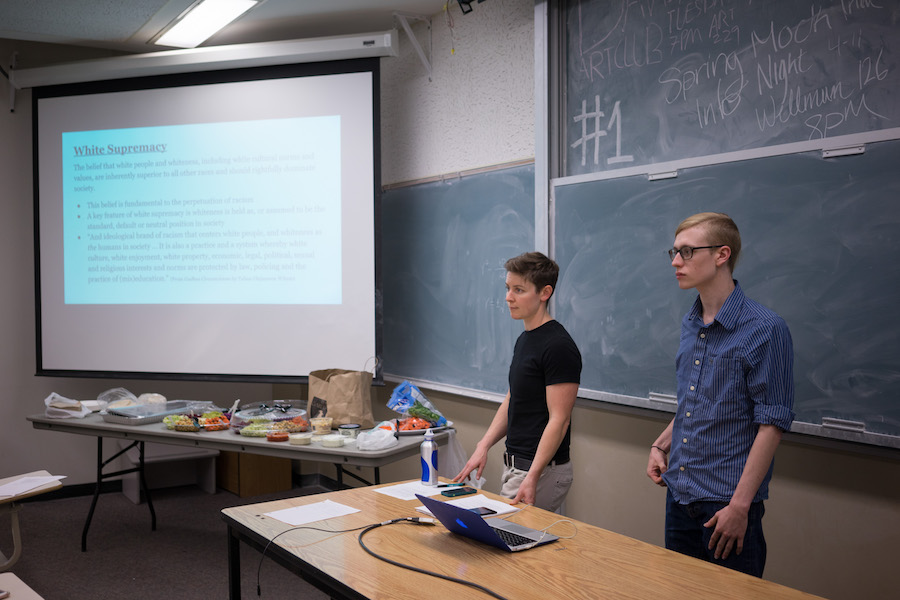
Workshop seeks to build awareness, understanding about racism
Students of the Lesbian Gay Bisexual Transgender Queer Intersex Asexual Resource Center (LGBTQIARC) held a workshop titled “Dismantling White Supremacy: Part 1” on April 19.
The workshop’s purpose was to build awareness and understanding around issues of race, racism and white supremacy as well as to discuss ways to combat these issues.
Beth Boylan, graduate student in the Department of Sociology, and Matt Reese, a third-year linguistics and Chinese double major, work together at the LGBTQIARC and presented the workshop.
“I felt that I haven’t done enough relating to race and racism,” Boylan said when asked why she decided to hold the workshop.
In the first section of the workshop, the presenters defined key terms, which included white supremacy, racism and oppression. They pointed out that racism is intrinsically connected to the systematic imbalance of power.
During this section, workshop participants were each given a copy of Peggy McIntosh’s “Privilege Checklist,” which is a document that allows students to see how privileged they are based on how they answer a series of statements. These statements include “I can choose blemish cover or bandages in flesh color and have them more or less match my skin” and “I can turn on the television or open the front page of the paper and see people of my race widely represented.”
The audience and presenters discussed the difference between oppression of people of color versus what might be perceived as “oppression” toward white people. The presenters pointed out that, because racism must be related to the systematic imbalance of power, the oppression that white people might experience (such as bullying) is importantly different from systematic racism.
In the second part of the workshop, the presenters talked about the different dimensions of identity using an atom model with one’s race, sexual orientation, class and other factors surrounding one’s core identity.
Next, the presenters discussed the intersectionality of identities. One example in their PowerPoint was how a disabled African American woman would face various combined forms of oppression relating to her ableness, race and gender.
Toward the end of the workshop, the presenters showed a video about the history of the word “Caucasian.”
The workshop ended with a discussion of how students can be an accomplice — someone who actively takes a stand against racism — rather than simply an ally.
“I like how it [the workshop] provided a lot of concrete basics to talk about oppression and racism,” said Faryal Irfan, a fourth-year anthropology major. “It means a lot […] I’ve been dealing with staying silent when I could have stepped out against microaggression and racism I saw in my daily life but I didn’t have the language or way to bring up how uncomfortable I felt and why I felt what they were doing was wrong.”
This workshop was part one of a series of workshops the LGBTQIARC plans to hold. Future workshop topics will include microaggression and family.
“Racism is often hidden from those who do not experience it,” Reese said. “I wanted to educate other white people on racism and clear up myths regarding the issue.”
Written by: Clara Zhao — campus@theaggie.org



